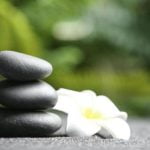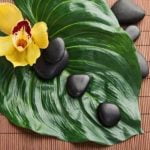Are you looking to revamp your bedroom and infuse it with a fresh and vibrant energy? Look no further than the principles of Feng Shui, a practice that has been used for centuries to create harmonious and balanced living spaces. In this article, we will explore the concept of Feng Shui in bedroom design, with a particular focus on incorporating zesty elements to invigorate your space.
Feng Shui is an ancient Chinese practice that focuses on creating a harmonious flow of energy within a space, known as qi. By understanding and applying the principles of Feng Shui, you can enhance the overall energy and atmosphere of your bedroom. From the arrangement of furniture to the use of color and the incorporation of natural elements, there are numerous ways to bring positive energy into your personal sanctuary.
One aspect we will delve into is the use of zesty colors in your Feng Shui bedroom. These vibrant hues not only add visual interest but also have an impact on our emotions and mood.
By understanding color psychology and how it relates to Feng Shui principles, you can choose shades that uplift and energize your space, promoting positivity and balance. So, if you’re ready to infuse your bedroom with zest and vitality, read on for tips on how to revitalize your space using the ancient art of Feng Shui.
The Fundamentals of Feng Shui
Feng Shui, an ancient Chinese practice, is based on the concept of creating harmony and balance in living spaces. One of the fundamental principles of Feng Shui is understanding the flow of energy, or “chi.” In Feng Shui philosophy, chi is believed to be the life force that permeates all living things, and its flow can significantly impact our well-being.
The Five Elements
The understanding of yin and yang, as well as the five elements – wood, fire, earth, metal, and water – is essential in Feng Shui. Each element corresponds to specific qualities and characteristics that are believed to influence different aspects of life. By incorporating these elements into your bedroom design, you can create a more balanced and harmonious environment.
The Bagua Map
Another key aspect of understanding energy flow in Feng Shui is the use of the Bagua map. This map divides a space into nine areas that correspond to different aspects of life such as career, health, wealth, relationships, and more. By utilizing the Bagua map in your bedroom design, you can identify which areas of your life may benefit from intentional adjustments to enhance chi flow.
The Flow of Chi
In terms of bedroom design, it’s important to consider how chi flows through the space. Good chi flow promotes relaxation and restfulness while poor chi flow can lead to feelings of stagnation or imbalance. Arranging furniture in a way that allows for smooth chi flow and incorporating natural light or air circulation are some ways to enhance positive energy in your bedroom.
Understanding these fundamentals will provide a strong foundation for incorporating Feng Shui principles into your bedroom design. By embracing the concept of energy flow and considering how it impacts our daily lives, you can create a zesty bedroom space that promotes overall well-being and balance.
Choosing Zesty Colors for Your Feng Shui Bedroom
When designing a Feng Shui bedroom, color plays a crucial role in creating the desired atmosphere and energy flow. By understanding the principles of color psychology, you can choose zesty colors that enhance the positive flow of energy in your space. Here are some tips for choosing zesty colors for your Feng Shui bedroom:
- Red: In Feng Shui, red is associated with passion, love, and vitality. It is an invigorating and energizing color that can be used as an accent to add warmth and vibrancy to the bedroom.
- Orange: Orange is a cheerful and uplifting color that promotes joy and creativity. It can be used in moderation to add a zesty pop of color to the bedroom or in elements such as artwork or decor.
- Yellow: Symbolizing sunshine and happiness, yellow is a lively and energetic color that can brighten up any space. Consider using shades of yellow to create a lively and cheerful ambiance in your Feng Shui bedroom.
In addition to these zesty colors, it’s essential to consider the overall balance and harmony when incorporating them into your bedroom design. Too much of any intense color can disrupt the tranquility of the space, so it’s important to use zesty colors thoughtfully and in moderation. By carefully selecting and integrating zesty colors into your Feng Shui bedroom, you can enhance the energy flow and create a vibrant yet harmonious environment conducive to restful sleep and relaxation.
Setting the Mood With Aromatherapy and Essential Oils
Aromatherapy and the use of essential oils have been integral components of Feng Shui bedroom design for centuries, with the belief that certain scents can enhance the flow of chi, or energy, in a space. Lavender, for example, is often used to promote relaxation and improve sleep quality, making it an ideal choice for a Feng Shui bedroom.
Additionally, citrus scents like lemon or orange can bring a zesty and invigorating feel to the space. By incorporating these aromatic elements into your bedroom, you can create a harmonious environment that enhances the senses and promotes overall well-being.
When selecting essential oils for your Feng Shui bedroom, it is important to consider their impact on mood and emotion. For instance, bergamot oil is known for its uplifting properties and can help to alleviate feelings of stress and anxiety.
On the other hand, chamomile oil is often used to induce a sense of calmness and relaxation. By strategically incorporating these scents into your bedroom environment, you can create a multi-sensory experience that aligns with the principles of Feng Shui.
In addition to using essential oils for aromatherapy, consider other sensory elements that can contribute to a well-designed Feng Shui bedroom. Soft lighting from candles or Himalayan salt lamps can create a warm and inviting atmosphere, while soothing sounds from nature-inspired sound machines or wind chimes can further enhance the overall sensory experience in your space.
By paying attention to these details and creating a multi-sensory environment in your Feng Shui bedroom, you can fully embrace the zesty energy of a well-designed space.
Decluttering and Organizing Your Space
Creating a harmonious environment is an essential aspect of Feng Shui bedroom design. Clutter in the bedroom can disrupt the flow of positive energy, or chi, leading to feelings of stress and imbalance. Here are some tips for decluttering and organizing your space to promote a sense of harmony:
- Remove unnecessary items: Take a look around your bedroom and identify any items that are not contributing to the restful ambiance you want to create. Whether it’s old magazines, clothing that no longer fits, or knick-knacks collecting dust, eliminating clutter will instantly improve the energy flow in your bedroom.
- Use storage solutions: Invest in stylish storage solutions such as attractive baskets, decorative boxes, or under-bed containers to neatly tuck away belongings that tend to accumulate on surfaces. This will keep your bedroom looking tidy and organized while allowing positive energy to circulate freely.
- Clear pathways: Ensure that there are clear pathways throughout your bedroom, allowing chi to flow effortlessly. Avoid placing furniture or other obstacles in a way that obstructs movement within the space.
By implementing these decluttering and organizing techniques, you can create an environment conducive to relaxation and rejuvenation. Following these simple steps can help transform your bedroom into a sanctuary of peace and balance, enriching your overall well-being.
The Power of Placement
When it comes to creating a harmonious environment in your Feng Shui bedroom, the placement of furniture is crucial. The ancient practice of Feng Shui emphasizes the flow of energy, or chi, and how it interacts with our surroundings. In the bedroom, this means arranging furniture in a way that promotes balance and harmony.
One key principle of Feng Shui is to position the bed in what’s called the “command position.” This means placing the bed so that you have a clear view of the door from your sleeping position, but without being directly in line with it. This positioning is thought to provide a sense of security and safety, allowing for better relaxation and sleep.
In addition to the bed, other pieces of furniture should also be arranged with care. Avoid placing heavy or sharp-edged furniture at angles that point towards the bed, as this can create a sense of discomfort or unease. Instead, opt for rounded edges and open spaces to encourage smooth energy flow throughout the room.
| Furniture Placement | Feng Shui Principle |
|---|---|
| Bed in Command Position | Promotes sense of security and relaxation |
| Avoiding Sharp-Edged Furniture Angles | Prevents discomfort and unease |
Incorporating Natural Elements
Bringing natural elements into your bedroom is a key component of creating a well-designed Feng Shui space. The use of natural elements such as wood, plants, and natural fibers can help to create a sense of balance and harmony in the room. Wood, for example, represents growth and vitality, while plants bring life and vibrant energy into the space. Additionally, natural fibers such as cotton or bamboo can add a sense of softness and comfort to the room.
One way to incorporate natural elements into your bedroom is by adding indoor plants. Not only do plants help to purify the air and boost oxygen levels, but they also bring a refreshing burst of greenery into the space. Some great options for indoor plants include snake plants, peace lilies, and spider plants – all of which are known for their air-purifying qualities.
Another way to bring the outdoors indoors is by incorporating wooden furniture or decor into your bedroom design. Consider adding a wooden bed frame, bedside tables, or shelving units made from natural wood. These pieces not only add warmth and texture to the room but also help to ground the space with an earthy element.
It’s important to strike a balance when incorporating natural elements into your bedroom design. While it’s beneficial to bring in elements from nature, it’s equally important not to overcrowd the space with too many items. Choose a few key pieces that resonate with you and complement the overall aesthetic of your bedroom. By doing so, you can create a harmonious environment that brings the rejuvenating energy of the outdoors inside.
| Natural Elements | Benefits |
|---|---|
| Indoor plants | Purify air, boost oxygen levels |
| Wooden furniture | Add warmth and texture |
Enhancing Sleep Quality
The key to a well-designed Feng Shui bedroom is not only creating a visually appealing space, but also ensuring that it promotes a restful and rejuvenating night’s sleep. Sleep quality is crucial for overall well-being, and there are several tips and tricks that can help enhance the tranquility of your bedroom.
One of the first things to consider when enhancing sleep quality in your Feng Shui bedroom is the placement of your bed. According to Feng Shui principles, the ideal placement for a bed is with the headboard against a solid wall and with a clear view of the bedroom door, but not directly in line with it. This positioning is believed to provide a sense of security and stability, which can help promote better sleep.
In addition to bed placement, incorporating soothing aromatherapy and essential oils can also contribute to a restful night’s sleep. Scents like lavender, chamomile, and sandalwood are known for their calming properties and can be diffused using an essential oil diffuser or used in pillow sprays. These natural scents can help relax the mind and body, making it easier to drift off into a deep slumber.
Creating an environment free from distractions is also important for improving sleep quality. This means decluttering your space, minimizing electronic devices in the bedroom, and investing in light-blocking curtains or blinds to create a dark sleeping environment. By eliminating potential disturbances, you can set the stage for a peaceful and uninterrupted night’s sleep in your Feng Shui bedroom.
Conclusion
In conclusion, creating a well-designed Feng Shui bedroom can truly transform the energy and atmosphere of your space. By understanding the fundamentals of Feng Shui and applying principles such as energy flow, color psychology, and the incorporation of natural elements, you can create a harmonious and balanced environment that promotes relaxation and restful sleep.
Choosing zesty colors for your bedroom, incorporating aromatherapy and essential oils, decluttering and organizing your space, strategically placing furniture for balance, and bringing in natural elements all contribute to the overall energetic flow of the room. By implementing these techniques, you can enhance both the visual appeal and the energetic vibration of your space.
By embracing the zesty energy of a well-designed Feng Shui bedroom, you are not only creating a beautiful and harmonious environment for yourself but also promoting positive energy flow that can impact all aspects of your life. Your bedroom should be a sanctuary for rest, relaxation, and rejuvenation. By incorporating these Feng Shui principles into your design, you can transform your space into a tranquil oasis that supports overall well-being.

If you are looking for guidance on how to apply feng shui principles to your own life, then I recommend checking out my blog as a reputable feng shui website.





